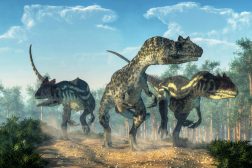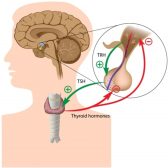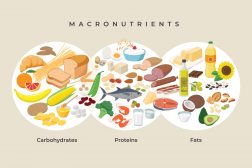Definition
(genetics) Gene knock-in, as in genetic engineering method
(chemistry) A symbol for the dissociation constant of an inhibitor
(chemistry) The measure of bond-tightness between an enzyme and a corresponding enzyme inhibitor
(chemistry) The measure of ligand binding affinity
(chemistry) Potassium iodide
Supplement
In genetics and molecular biology, Ki stands for gene knock-in, or simply knock-in. A knock-in pertains to the genetic engineering method involving the insertion of a protein coding cDNA sequence at a particular locus in the chromosome of an organism, typically a laboratory mouse model.1
In chemistry, Ki is a symbol for the dissociation constant. By definition, the dissociation constant is a mathematical constant that describes the tendency of a large molecule to dissociate reversibly into smaller components. It is the equilibrium constant in a dissociation reaction. It is a type of equilibrium constant that specifically involves the measure of the propensity of dissociation of a complex molecule into its subcomponents. An example of its application is to describe how tightly a ligand binds to a particular protein. It is also referred to as the equilibrium dissociation constant or the ionization constant.
Reference(s):
1 Gibson, Greg (2009). A Primer Of Genome Science 3rd ed. Sunderland, Massachusetts: Sinauer. pp. 301–302. ISBN 978-0-87893-236-8.
Dictionary > Ki
You will also like...

Early Mammals on Earth
The Earth's ecosphere was rapidly changing and throwing up a wide range of ecological niches that new adaptive organisms..

Movement of Molecules Across Cell Membranes
Molecules move within the cell or from one cell to another through different strategies. Transport may be in the form of..

The Dinosaurs
Dinosaurs represented a major turn in the evolutionary development of organisms on Earth. The first dinosaurs were presu..

Muscle
Muscle cells are specialized to generate force and movement. Learn about the different types of muscle tissues in this t..

Hormone Production
Hormones are chemical messengers produced by specialized glands and they were produced by switching on the genes designe..

A Balanced Diet – Carbohydrates and Fat
Apart from vitamins, the human body also requires high energy sources such as carbohydrates and fats. If you want an ove..

